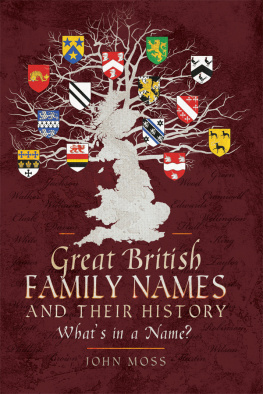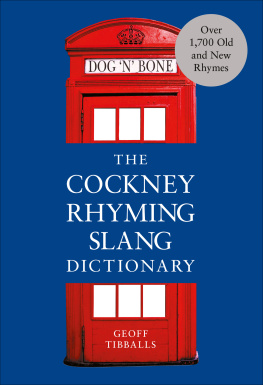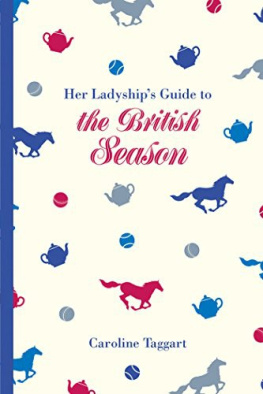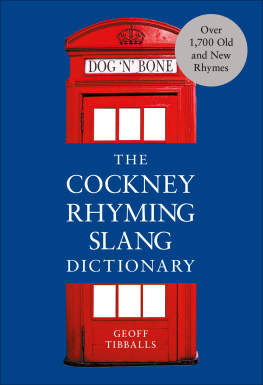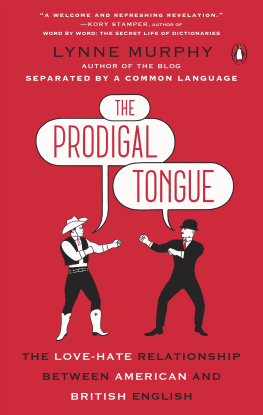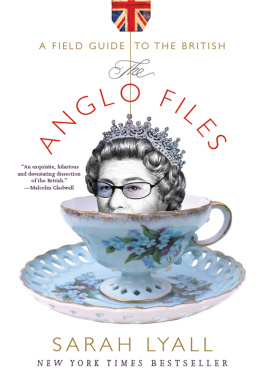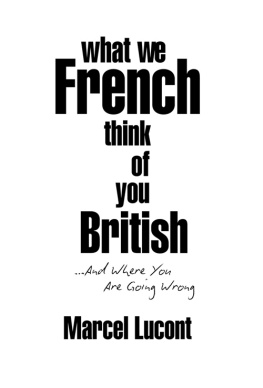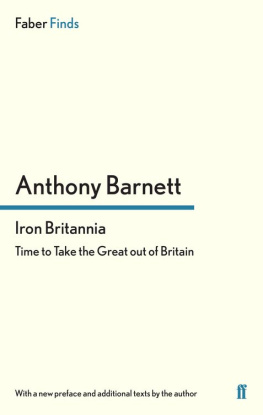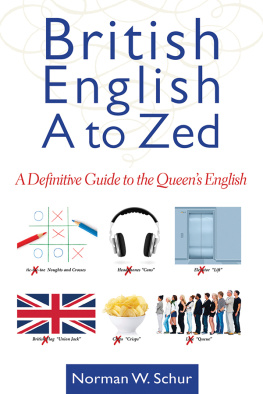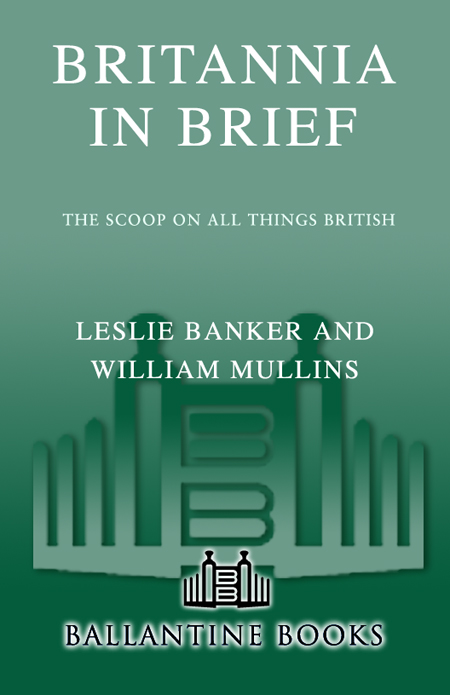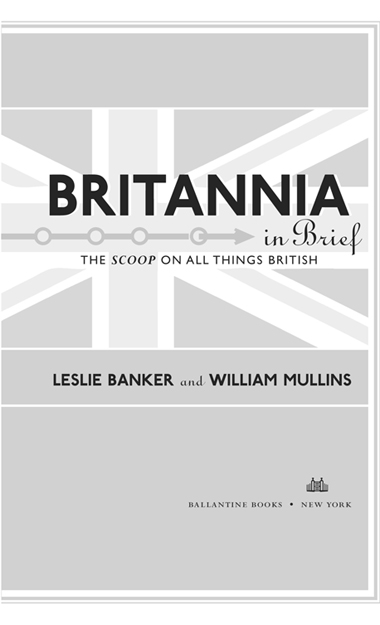PREFACE
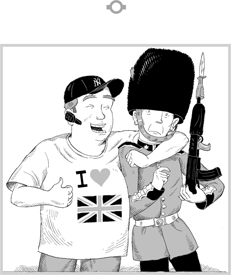
When we got engaged, we knew it was the dawn of an era of togethernessliving together, vacationing together, paying bills together, maybe even showering togetherbut writing a book together wasnt something that we had ever considered. Then we spent a week in England visiting family, attending a friends wedding, and going to a few dinner partiesit was the first time wed been to the UK togetherand Leslie, the native New Yorker, had about a million questions for William, the native Londoner. Whats an ASBO? Who are chavs, yobs, and hoodies? How about a TARDIS? Whos more important, a duke or an earl? Is bloody a very bad word or a mildly bad word? Whats salad cream? Is Kylie Minogue really an icon in the UK? Do I tip at a pub? And what the heck is a test match at Lords? Some of the questions were so basic they seemed embarrassing: Exactly whats the difference between the UK, Britain, and England? How often are parliamentary elections held? Is the UK a member of the EU? If so, then why do they use pounds instead of euros?
In short, over the course of that trip we realized the cultural divide between the US and the UK is really a gaping chasm. We needed a book that would answer all these questions once and for all. And so we wrote Britannia in Brieftogether. And it worked out surprisingly well (except for a few minor nationality-based disagreements regarding punctuation and spelling).
Since we embarked on this project, weve been able to forgo the previously necessary debriefings on subsequent trips to the UKwhether they were about the Profumo Affair or Melvyn Braggand it was a huge relief for Leslie to finally get the jokes and join the conversation and for William to not have to answer so many questions.
We hope that you find as much satisfaction and enjoyment in reading Britannia in Brief as we had writing it (which is to say, it was a very positive experiment in togetherness).
CONTENTS
CHAPTER 1
SO WHERE ARE WE ANYWAY?
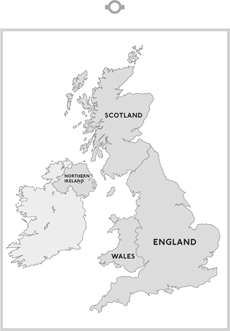
United Kingdom of Great Britain
and Northern Ireland
ENGLAND? BRITAIN? UK? WHATS THE DIFFERENCE?
First things first: England, Great Britain, UK? All the same thing? These terms, which are so often used interchangeably, actually refer to distinct geographical and, frequently, political entities. Should you still think these distinctions are inconsequential after reading these pages, we invite you to visit, lets say, a bar in Scotland and inform the boys just how cute their English pub is. By the time your bruises and scars have healed, you will have had ample time to mull over the weightiness of these distinctions.
Scotland, England, and Wales are three separate nations all inhabiting the island of Britain.
What do we mean by nation? It is not our intention to burden you with medieval history and constitutional arcana, so suffice it to say, at one point Scotland and Wales were separate kingdoms, which at different points in time, and with varying degrees of resistance, fell sway to English rule through Acts of Union. Lest you think this all sounds like a one-way transaction, it should be pointed out that such great English dynasties as the Stuarts and the Tudors had their roots in Scotland and Wales respectively.
The United Kingdom, or UK, is officially the United Kingdom of Great Britain (the big island) and Northern Ireland (the predominantly Protestant northeast quarter of the island of Ireland, distinct from the predominantly Catholic Republic of Ireland).
Broadly speaking, the inhabitants of the UK are called the British (and definitely not the Uniteds or the Kingdoms). So, while both a Welshman and a Scotsman are British, neither is English. Generally, though, people of the UK are more likely to describe themselves as Scottish, Welsh, Northern Irish, or English than as British. A Scotsman, by the way, is a Scot, and not Scotch, a term considered derogatory and best used only in America when ordering what in Scotland is simply called whisky (in the US spelled whiskey).
We now offer you the exclusive Peoples of the UK Venn diagram:
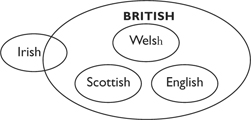
VITAL STATISTICS
Many of the cultural differences between the US and UK begin with the basic fact that the UK is much smaller than the US.
UK Population in 2007: 60,975,000
US Population in 2007: 301,140,000
UK total land: 94,251 square miles (244,110 square kilometers, smaller than Oregon)
US total land: 3,619,969 square miles (9,375,720 square kilometers)
GENERAL BRITISH FAQS
Is the UK a part of the European Union?
Yes, though youd think it had been imposed at gunpoint by some Franco-German mob to hear how people talk about it. Actually, in 1973 the British voted in a referendum and joined what was then known as the European Economic Community. Conservatives argue that the UK joined a free-trade zone that has become a superstate where unelected bureaucrats in Brussels dictate what the British can and cannot do. The more liberal argument is that after two world wars ripped the continent apart in the last century, the EU has helped usher in the longest period of peace in European history.
Then why doesnt the UK use the euro like other EU countries do?
Because the UK delayed joining the economic and monetary union within the EU, and kept their own currency. There is still some lively debate in the UK about whether they should trade their sterling for euros. Another EU country that chose to forgo the euro is Denmark, where in 2000 voters said no in a referendum to adopting the euroso the Danish krone is still used. It would be enormously difficult for any British prime minister to commit the UK to joining the eurozone without a referendum, and it is most likely that any vote on the matter would not favor giving up the pound.
Whats the Commonwealth?
Its a group of independent states, primarily former colonies of Britain, that maintain an association of cooperation and recognize the reigning monarch of Britain as its symbol. Basically, its what the British Empire has evolved, or devolved, into, depending on your point of view.
There are fifty-three independent states that are part of the Commonwealth, including Australia, the Bahamas, Bangladesh, Belize, Botswana, Canada, Cyprus, Ghana, India, Jamaica, Kenya, Malaysia, Maldives, New Zealand, Nigeria, Sierra Leone, Singapore, South Africa, Sri Lanka, Uganda, and, of course, the United Kingdom. Nations within the Commonwealth do not have ambassadors to one another; instead they exchange high commissioners.


